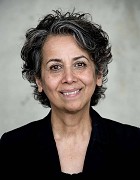

|
Sun2 Apr01:25pm(20 mins)
|
Where:
Gilbert Scott Room 250
Presenter:
|

Migrant mother from post-Soviet countries in Sweden – experiences, problems and challenges. This paper presents the results of a study on experiences of mothering by migrant mother from the “post-Soviet space” in Sweden. The study is based on 1) a review of the political debate about migrant mothers in Sweden 2) qualitative interviews with 8 migrant mothers from the Central Asia or the Caucasus region (predominantly Muslim regions) residing in Sweden. The study focuses on migrant mothers’ experiences of mothering. With the rise of the right-wing nationalist currents, the political tone against non-European and Muslim migrants, has become too harsh in Sweden. Central to the depiction of migrant mothers is that they give birth to too many children and stay at home in place of being employed. How do the experiences of the migrant mothers from the former Soviet (Muslim) regions can be evaluated in this context? The results of the study show that these mothers do not correspond to the dominant descriptions of “migrant mothers”. Indeed, most of the interviewees in this study had a 3 to 5-years university education from their homeland and had worked for a few years before migration. Most of the women were single mothers and worked in a low-wage occupation. Almost all had experiences of working hard and long hours for supporting their families. My analysis suggests that a combination of post-Soviet legacies, women's upbringing environments, the social context they live in,